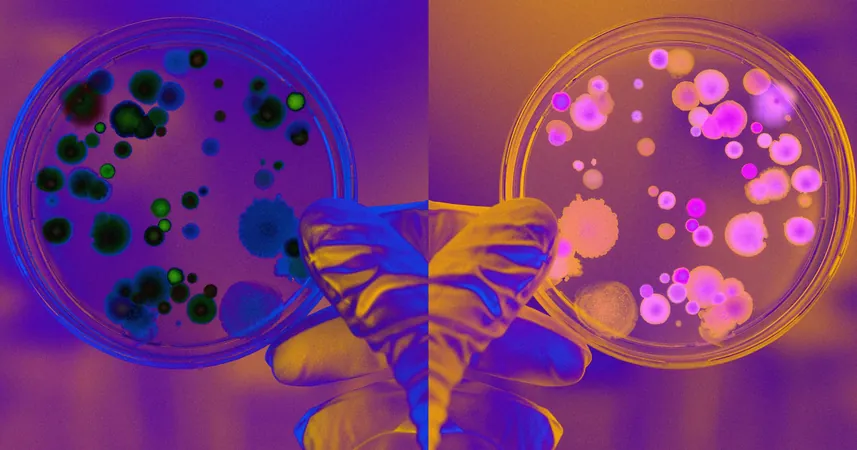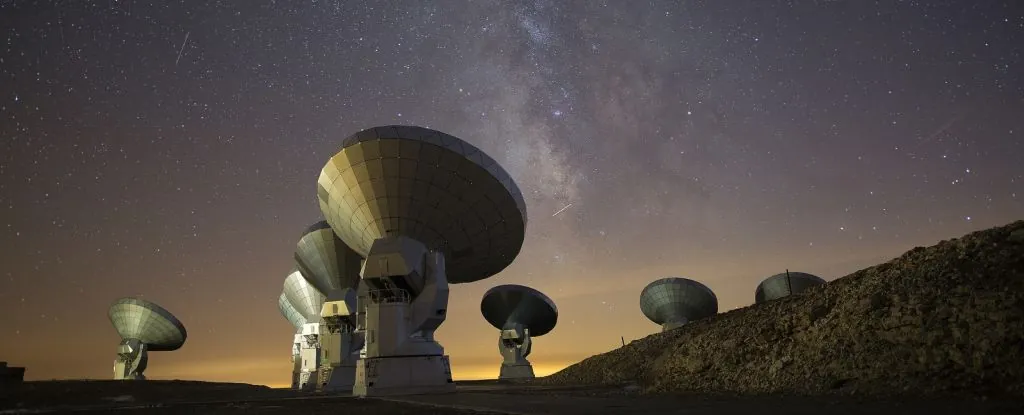
Scientists Clash Over the Dangers of 'Mirror Life' Research That Could Endanger All Life on Earth
2025-09-20
Author: Emma
A Revolutionary Yet Risky Exploration
In a groundbreaking yet controversial debate, scientists have raised alarm bells over the research into "mirror life" organisms—hypothetical entities constructed from molecules that perfectly mirror those in conventional life. While the concept might sound intriguing, experts caution that unleashing such life forms could pose an existential threat to our planet.
The Potential Threat of Mirror Life
Imagine a life form designed to mimic our very own yet operates outside of nature’s checks and balances—it could become an unstoppable invasive species. According to a December report from Stanford University, these mirror organisms could wreak havoc, leading to pandemics, crop failures, and even total ecosystem collapse. Jack Szostak, a Nobel-winning chemist, warned the consequences could be "globally disastrous."
Scientific Divide Sparks Heated Debate
However, the scientific community remains divided. Some argue the fears surrounding mirror life are overblown, suggesting that we are still years away from synthesizing these complex molecules, let alone full organisms. Even if mirror life were to escape the lab, some experts believe natural systems could defend against it.
Recent Meetings Highlight Tensions in Research Community
This week, researchers gathered in Manchester, UK, to deliberate whether to put a halt on mirror life research. Supporters of the study advocate for its potential in drug development, arguing that "reverse chirality" molecules could lead to groundbreaking new medications. Yet there are legitimate concerns; these molecules might resist detection by the human body's immune system, leading to dangerous consequences.
Voices of Caution from Within the Field
Biochemist Sven Klussmann warned against panic and premature restrictions but acknowledged the need for careful consideration of risks. Conversely, some scientists, through the nonprofit Mirror Biology Dialogues Fund, are pushing for a cessation of this research altogether, citing the possible dangers inherent in creating mirror-image cells.
Progress and Challenges in Mirror Life Research
While researchers have already made strides by producing short strands of mirror-image DNA and amino acids, synthesizing larger structures remains an uphill battle. Molecular biologist Ting Zhu cautioned against letting anxiety cloud our judgment. He emphasized the distinction between the current research efforts and extreme hypothetical scenarios involving full organisms.
A Call for Vigilance and Preparedness
In a nuanced perspective, University of Alberta's Ratmir Derda noted that our bodies are already evolved to detect mirror-image sugars, suggesting we may not be entirely defenseless. Organic chemist Derek Lowe, while not overly concerned at the moment, advised setting precautionary measures for the future.
Conclusion: A Scientific Tightrope
As the debate unfolds, one thing is clear: the realm of mirror life research teeters on a delicate balance between innovation and caution. While it offers tantalizing possibilities for health and medicine, the potential risks call for vigilance and thoughtful deliberation. Clearly, as we edge closer to the unknown, the scientific community must tread carefully.









 Brasil (PT)
Brasil (PT)
 Canada (EN)
Canada (EN)
 Chile (ES)
Chile (ES)
 Česko (CS)
Česko (CS)
 대한민국 (KO)
대한민국 (KO)
 España (ES)
España (ES)
 France (FR)
France (FR)
 Hong Kong (EN)
Hong Kong (EN)
 Italia (IT)
Italia (IT)
 日本 (JA)
日本 (JA)
 Magyarország (HU)
Magyarország (HU)
 Norge (NO)
Norge (NO)
 Polska (PL)
Polska (PL)
 Schweiz (DE)
Schweiz (DE)
 Singapore (EN)
Singapore (EN)
 Sverige (SV)
Sverige (SV)
 Suomi (FI)
Suomi (FI)
 Türkiye (TR)
Türkiye (TR)
 الإمارات العربية المتحدة (AR)
الإمارات العربية المتحدة (AR)